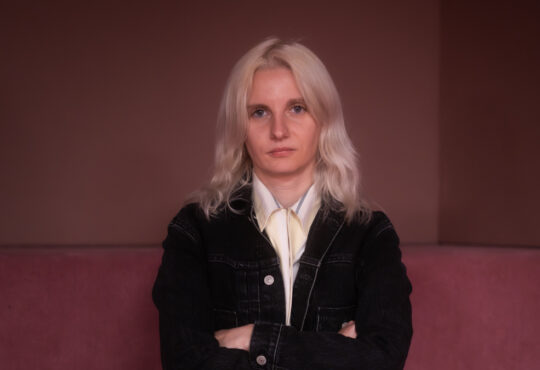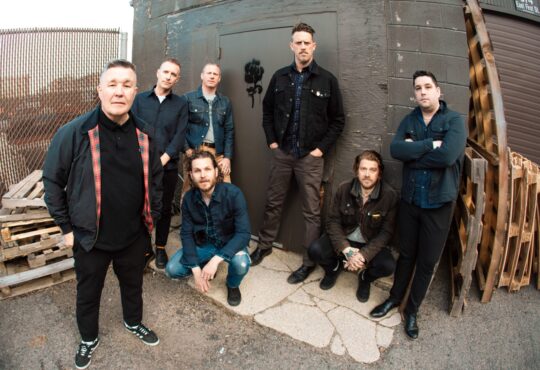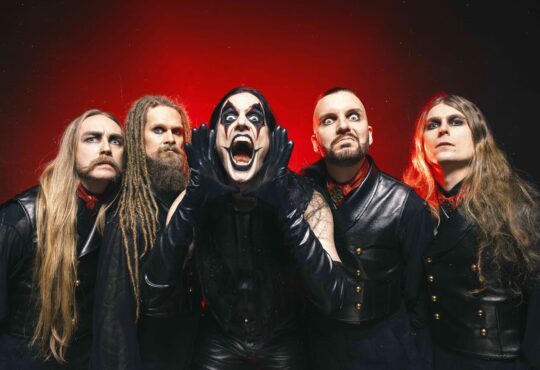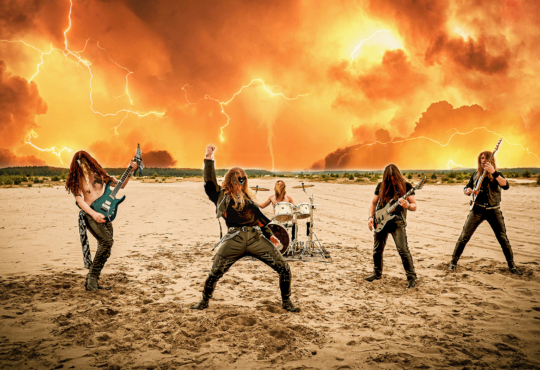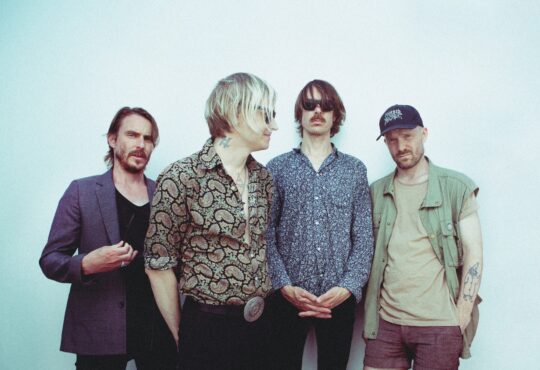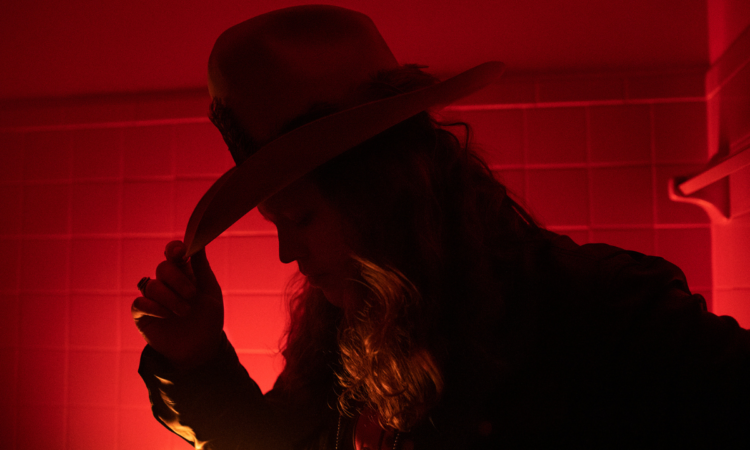
Marcus King returns with a brand new studio album after facing breakup and substance abuse. The King is back!
Hi Marcus, how is your little tour in Europe right now?
Marcus King: It’s been good. It’s been kind of long. More so because it was nonstop. Like you said, we weren’t over here very long, about a month. So we had a lot to fit in.
Any special moments, we saw that you played with Great Van Fleet in the UK.
Marcus: Yeah. It’s always a good time with those boys. We always have a good time together. And last night, in fact, we actually spent some time with George Benson, and we got to see Diana Ross play. So, we had a real good time. It was at North Sea Jazz Festival.
You will release your new album, Young Blood, in August. And many things grab our attention around the whole album and the information that we found about it. First you recorded live. Everything is performed and captured live. So why this specific choice? Was it your choice or Dan’s idea maybe? Or both.
Marcus: It went along with the theme that Dan (Auerbach) and I wanted to get across. We wanted to do an arena rock style, late sixties, just riff driven, hard rock and record. But we wanted the lyrics to be deeper. We wanted to go a little bit deeper than the surface. So, cutting it live, really just kind of lent itself to that sound.
Yeah, this was made this decision was made very early on. And so that’s the best way to capture the essence of a rock and roll band, in my opinion, and dance to.
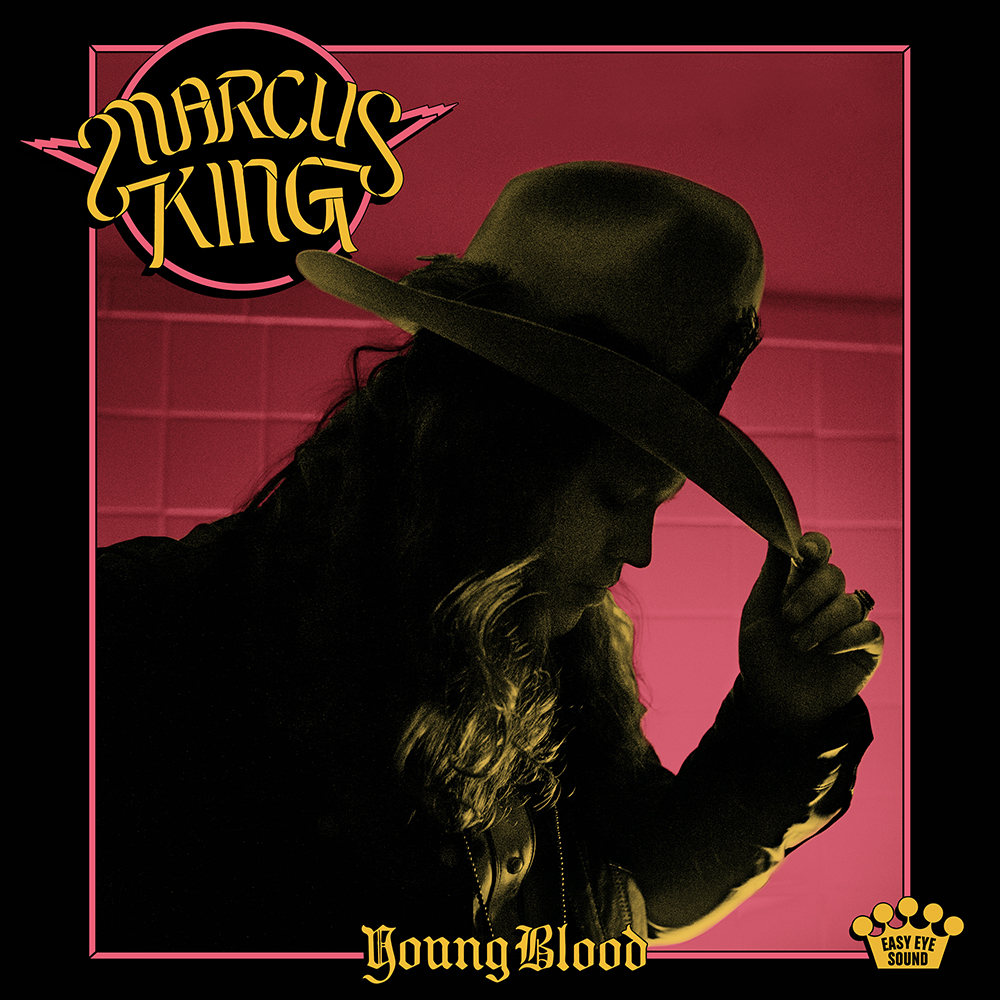
Did you use tapes for the record or just using regular digital recording?
Marcus: There was a tape machine involved. We cut the record on Pro Tools and we bounced everything to tape to get that sound. But we did the record in six days’ time. So with tape, it just kind of slows the process down. And we wanted to work rather quickly just because everything’s happened so organically.
The mix is also very organic, even authentic. Were you looking for a different energy? Obviously, compared to Eldorado.
Marcus: It wasn’t intentionally meant to be opposite of Eldorado (2020), but it just kind of came out in the wash. You know, we started the record to be a rock and roll record. And it was a breakup record. It was a substance abuse record. It was a really dark period for me and I was able to get that point across. But this time around I needed a little more overdrive. I had a little more and more fury behind what I was saying.
Saying that, did it impact your process during your studio sessions apart from the live recording?
Marcus: They were pretty similar in the recording process. Yeah, with the exception of we were recording all live at the same time, which we did that in Eldorado too, for the most part, and but not all in the same room.
The main inspiration and topics here are your personal recent experiences. These are really serious topics. Some artists would have turned those into mellow or sad tunes, but you went totally rock with a lot of energy. How can you explain these differences between the topics you’re dealing with and the result, with a really energetic and rock n roll record?
Marcus: I think it’s the juxtaposition that I like and when I got to pull myself out of a hole, it’s usually like: ‘all right‘, when I wake up in the morning, I need some rock and roll. I don’t want to listen to smooth jazz in the morning, so I need something to get me up and get me going. And this music kind of kicked me in the ass and turned it around. It was a cathartic release.
And how was your creative process and how did you work with Dan? How did you interact and interact both?
Marcus: Dan and I work really well together. We’ve been good friends and collaborators past three or four years now, and with this record it was even more comfortable and more organic. And the writing process took about two weeks, and it would be Dan and myself. I’d bring in my songs and we brought in a rotating door of, outstanding writers like Desmond Child and Andrew Gabbard. It was all just really prolific rock and roll writers and we would start the writing session just like how we’re talking now, like a therapy session almost. And I would just tell them what I was going through and then we would start writing.
You spent six days in the studios. Were those six days planned to be six days? Or was it maybe supposed to be a bit longer? And were you surprised from the outcome of only six days in the studio for a record?
Marcus: I mean, we intended to be there as long as we needed to be. And after six days, we were like: ‘I think we’ve just finished the record‘. So we weren’t necessarily shocked because the players on the record are so professional and so talented that we never did anything more than once or twice for a take.
I mean, just with the exception of Eldorado, we did Eldorado in four or five days. As far as just the tracking, it just when you got players that are that efficient and that they’re great to work with and your cues and your parts, it’s just it’s why overthink it? Why overcomplicate it? Just the first two takes were great. Why would we do five? Yeah, I mean every producer is a little different. But for me, I mean, if the first take sounds good, keep it. And I think Dan feels the same.
What kind of inputs did Dan bring to your process and creativity?
Marcus: Dan knows how to write a hook really well. He’s got such a great mind for writing and his production style allowed me to kind of have a little more freedom as a performer. And it was just really more like a live performance for me. They just happened to be hitting the record.
What was the most challenging thing to achieve with this new album?
Marcus: The most challenging thing. I mean, the work itself was my escape from my every day. And my every day was just a real dark place. So I was happy to go in and work because otherwise I was really not treating myself well. I was going through a lot, so I was doing everything in a little bit of excess. So I’m glad I had a job to do.
How did you feel once you were done after those six days. Did it help you or was that the first step towards a better place?
Marcus: I just went out on the road and it just kind of got worse from there. And then I met my fiancée. Now my now fiancée. I met her at the second show, and everything turned around.
What are you most proud of with this record?
Marcus: I was proud of the honesty that we were able to convey through the songs and the story I was able to tell.
How would you describe yourself as an artist? There’s, for example, the track called “Hard Working Man”. Does it somehow define you or at least a part of you?
Marcus: Yeah. I mean, it’s a risk. I mean, if I may say so humbly, I would’ve never written a song called “Hard Working Man” if I if I didn’t think it’s so. And I was raised up around really hard working folk and everybody work really hard for everything they had. And I believe I’ve done the same.
I’ve just always had the mindset that if you love something enough, you should work your ass off for it. And that’s how I feel about the music. I just love it and I work really hard at it. And when I describe myself as the artist I just try my best to make myself a vessel or a channel for the music to flow through and allow myself just to be an amplification of the music and try not to put too much of my ego in it.
Try not to put too much of my mind into it and let my heart and soul be conveyed through the microphone and through the strings. And I don’t mean that to sound pretentious. I just. The further removed I can make myself onstage, that’s the truer form of me that you’re going to get as an audience participant.
Can we consider this record as a new start sonically? Even though the next ones isn’t there yet, but comparing to the Eldorado.
Marcus: What the secret is. The next record is already halfway finished. I’m addicted to my work. I love it. I love what I do. And I had a lot of things to say. The next record is truly a prequel to this album because it was all breakup songs whilst being in relationship and I’ve already said too much, but it’s still something I’m working on. I can’t really get into what kind of record it’s going to be, but I just want to keep people guessing and I’d like it for people to be a fan of me and not one style of me. I just like all types of music.
We already heard a few singles but what can people and your fans expect from Young Blood?
Marcus: It’s just a rock and roll record. But dig a little bit deeper and you’ll find the message I was trying to get across, which is almost the opposite of Eldorado. The message was a little clearer because it was more balladeer style, but we wanted to do a rock and roll record with more depth in the lyrics.
Finally, the last question: we are RockUrLife. So basically what’s rocks your life Marcus?
Marcus: Oh, my fiancée, Riley. That’s my girl. She’s my rock. And so quite literally, she’s my rock. And she pushes me to be a better man, better human, and reminds me what it is that I’m working so hard for.
And do you have a hidden hobby or something?
Marcus: Weightlifting. I love fishing a lot. I love weightlifting. I do. And I love everything about it. And I’m really into nutrition and stuff. And that doesn’t show right now that.
It’s a great hobby to get into health and fitness, but fishing as well and into good fashion, I reckon. I like a good pair of boots. (laughs)
Thank you very much.
Marcus: Thank you.
Website: MarcusKingOfficial.com



